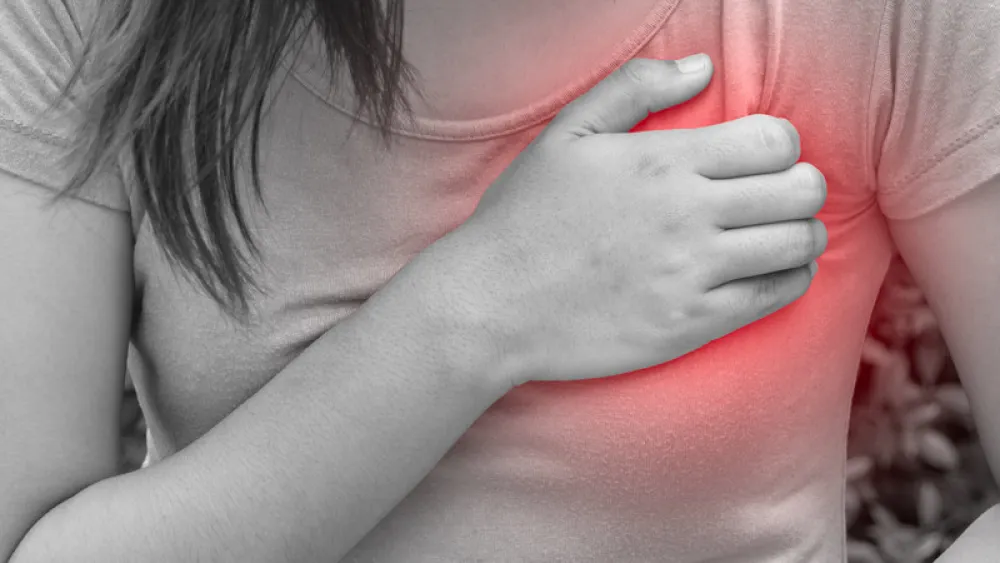Heart Health
Chest Pain: Should I Be Worried?
Published: Feb. 10, 2020

Most of us have experienced it: a twinge, tightness, even a sharp, stabbing sensation. And because most of us are well-versed on the symptoms that accompany a heart attack, that’s the most feared cause of chest pain.
But not all chest pain is cardiac in nature. There are a number of things that could be causing you discomfort without signaling a serious heart problem.
Musculoskeletal Chest Pain
About half of noncardiac chest pain is considered musculoskeletal. This type of pain is often localized and may worsen with certain movements.
Costochondritis – inflammation of the joint between the ribs and breastbone – is a common example of musculoskeletal chest pain. It may be brought on by exercise or a respiratory infection. Symptoms include:
- Pain when you take a deep breath or cough
- Pain when you press on the front of your ribcage
Gastrointestinal (GI) Chest Pain
Chest pain can also be GI-related.
Gastroesophageal reflux disease, often referred to as GERD, occurs when stomach acid flows up into the esophagus and causes irritation. GERD may cause:
- A burning sensation in the chest
- Tightness in the chest
- Painful swallowing
Pulmonary Chest Pain
Many pulmonary conditions can cause significant chest pain, too.
A pulmonary embolism, for example, is a blood clot that typically starts in the leg and travels to the lungs. This can cause:
- Sharp pain in the chest, arm, neck or jaw
- Shortness of breath
- Rapid heartbeat
Keep in mind that while pain caused by a pulmonary embolism is considered noncardiac, it can still be very serious and in some cases, fatal.
Chest pain from pleurisy – inflammation of the lining of the lungs – tends to occur with deep breaths and can be sharp and sudden.
Anxiety-Related Chest Pain
Sometimes anxiety can bring about chest pain, especially if you’re under a lot of stress or often experience intense bouts of fear.
Symptoms of an anxiety attack or panic attack can include:
- Rapid heartbeat
- Shortness of breath
- Upset stomach
- Sweating
- Tightness in the chest
 When in Doubt, Call
When in Doubt, Call
As you may have noticed, many of the symptoms associated with noncardiac chest pain are similar to those of a heart attack. That’s why it’s so important to seek medical evaluation if you have any doubt about the cause of your chest pain.
Your doctor will be able to determine whether it’s cardiac or noncardiac by:
- Reviewing your medical history
- Performing a physical exam
- Establishing your risk factors for heart attack
- Conducting further testing
And let me be clear: If you think you may be experiencing a heart attack, never hesitate to call 911.


